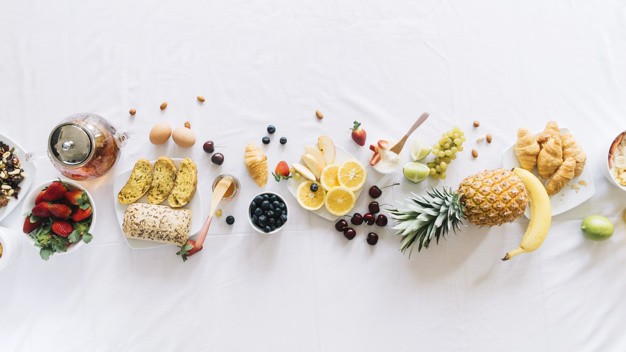The right dietary choices can pep up a senior’s health and prevent a host of serious conditions, writes Aafiya Khot
While we could happily gorge on pizzas, pastas and parathas as an adolescent, what we eat needs to change considerably with advancing age. The food that we bring to the table has to be more age-appropriate.
As we enter our sixties and seventies, a slower, more relaxed rhythm sets in. The energy that helped us bound around as a teenager and chomp the pizza in seconds reduces significantly. Our physical activity, levels of most hormones, haemoglobin decrease gradually with age resulting in a host of changes in our digestive system, rate of metabolism, enzyme production and chewing and swallowing. Our overall body muscles become weaker, less elastic and efficient, impacting every sphere of our functioning. Our metabolism or BMR (basal metabolic rate) becomes sluggish. People have insomnia which also affects the appetite. The side effects of medicines can be severe for some.
But there is lots that can be done to be healthy and happy, maintain an active and independent life, accomplish our dreams, and keep visits to the doctor at the minimum. Pack in the required nutrients like proteins, vitamins, carbohydrates, fibre and fluids judiciously in your diet to keep degenerative forces and diseases at bay.
Here are 10 super glorious food items that you need to stock up at home all the time for a fitter you.
- Green leafy vegetables – Eat more dark green vegetables, such as broccoli, spinach, kale, microgreen, methi. A study recently published finds that seniors who had daily helpings of leafy green vegetables had a slower rate of cognitive decline. Also helps in avoiding constipation.
- Fruits – Fruits are always fruitful. Love it or hate it. It boosts your energy and improves your stamina. Bananas, mangoes, custard apple, chikoos, grapes are high calorie dense fruits so can be taken in moderation whereas papaya, oranges, kiwi, lychees and plums, pomegranate are available in monsoons. Most of these are easily chewable and are counted among some of the anti-ageing fruits.
- Cereals – Cereals such as oats, jowar, ragi, lapsee can be consumed in the form of porridge, uttapam, pancakes, upma filled with mixed vegetables. These can be a great breakfast choices and easy to cook. They are filling and a super healthy option when it comes to breakfast. They are rich in iron, protein and a great source of fibre.
- Eggs – Eggs contain 13 essential vitamins and minerals, including Vitamin D, which is important to absorb calcium required for strong, healthy bones to fight onset of osteoporosis.
- Carrots – Carrots are often considered outstanding foods for senior citizens. It is loaded with antioxidants and can slow down Alzheimer’s Disease. For those with chewing problems, it can be softened by steaming or boiling and mashed or can be used with curds in a dip form.
- Beetroot – Beetroot is one of the best ways to increase haemoglobin levels. It is not only high in iron content, but also folic acid along with potassium and fibre. It builds the heart health. Also for iron, one can include dates, cauliflower stalk which we generally discard, jaggery, Halim seeds (garden cress seeds).
- Nuts – A handful of nuts like walnuts, almonds, cashews, pistachios, peanuts, etc consumed daily could help build cardiovascular health as it is rich in Omega 3 fatty acids. For those with dentures, the nuts can be ground and powdered.
- Dairy – low-fat or fat-free milk, yogurt, cottage cheese provide oodles of protein and calcium punch in every serving.
- Fish – Fish like salmon, mackerel, and sardines are high in Omega-3 fatty acids and should be included in the diet plan at least two servings a week.
- Whole grains – Grains like whole wheat, millet, rye, cracked wheat, barley, quinoa, etc increase fiber intake, lowers blood pressure, provides important vitamins, reduces high cholesterol, keeps blood sugar regulated.
The right dietary choices can pep up a senior’s health and prevent a host of serious conditions. The most important thing is that there should be small and frequent meals, they cannot have a big meal at one particular time. Generally, people have three meals a day, but for senior citizens something can be given every two to three hours. Do not skip breakfasts. Make small changes from today and incorporate these food items to ensure you lead a healthy life and let age come in the way of your happiness as age is just a number.
Aafiya Khot is Clinical Dietician at the Holy Family Hospital in Mumbai



